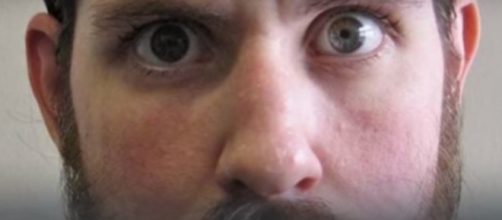At 9:15 p.m. last night, 35-year-old William Morva was pronounced dead after he was executed by lethal injection at Greensville Correctional Center in Jarratt, VA. Virginia Department of Corrections (DOC) executed the convicted killer. His last word was, “No,” when he was asked if he had any final words,” said Lisa Kinney, spokeswoman for the state’s DOC. He was executed without complications, but he was gasping for air at one point, according to Drew Wilder, a media witness from Richmond’s WWBT.
In 2008, Morva was sentenced to die after he murdered Derrick McFarland, a security guard, and Eric Sutphin, a sheriff’s deputy in Montgomery County, VA, following his 2006 prison escape.
Governor denied clemency petition for the condemned inmate
Governor Terry McAuliffe, VA, stated that, because Morva received a fair trial, it was his decision to allow the execution to proceed. He also said that the jury had heard “substantial evidence” about, the now-deceased, killer’s mental health. He was sentenced in “accordance” with the laws of the state.
The governor also relayed that there was insufficient evidence for him to take the “extraordinary step” of reversing the jury’s decision to impose the death penalty on Morva. He weighed the petition, for overturning the sentence, and after careful evaluation with his “team,” concluded that the diagnosis of mental illness was rendered seven years post-trial and conviction and would not have affected the sentencing.
McAuliffe was the killer’s last hope, but he denied the clemency petition. The U.S. Supreme Court and lower courts rejected also his appeals, though a legion of people sought to have Morva’s life spared, including two experts from the United Nations along with diplomats from Europe; Morva had dual citizenship in the United States and in Hungary. Over two dozen lawmakers also appealed to the governor to keep the condemned man alive.
Killer’s attorneys asserted client was mentally ill
Lawyers representing Morva asserted that he believed he was acting in self-defense and was in the throes of mental illness when he murdered the security guard and the sheriff’s deputy. Their contention was also that he was sentenced to die after jurors were “only” informed that he had a personality disorder.
Amnesty International, appalled over McAuliffe’s decision, considers the clemency denial and execution the norm for a “broken” death penalty system.
Before Morva murdered the security guard and the deputy sheriff, he was in jail with a trial pending for attempted robbery. During transport to a hospital, he overpowered an officer and shot and killed McFarland, who was not armed. The following day is when Morva used the officer’s gun, then, shot and killed Sutphin, during a manhunt.
Though a psychiatrist evaluated and diagnosed the killer seven years after he was already convicted, his attorney’s argued that the homicides were the outcome of their client having “severe mental illness” that didn’t allow him to differentiate reality from his delusions.
Killer first to experience state’s new injection protocol
Morva was the first condemned inmate In Virginia to undergo the state’s new lethal injection protocol, which lends the procedure to more secrecy. Critics claim that the protocol is designed to shield execution mishaps from the public.
Though Morva said he had no last words, Wilder said the soon-to-be executed Morva said something, yet no one could hear what he was said. He wore a blue shirt and jeans to his execution.


